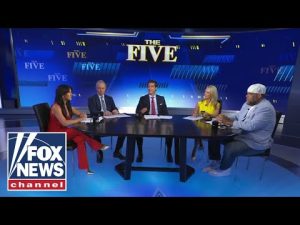It seems that Bill Maher has a knack for stirring the pot with his thought-provoking, yet often controversial, commentary. His recent musings on a supposed “slow-moving coup” allegedly orchestrated by conservative forces deserve a closer look. While his scenario might make for an interesting plot in a political thriller, a more grounded analysis reveals a far different picture.
To begin with, Maher’s interpretation of a “masked police force” seems to be focused on federal police deployed in Washington, D.C. He claims that these agents hide their identities to engage in some nefarious campaign against civil liberties. However, many federal agents wear masks to protect themselves from harassment and doxxing, not because they are part of some secretive cabal. These individuals are public servants performing a challenging job in difficult circumstances.
The assertion of a “permanent police presence” in Washington, D.C., is another point that demands scrutiny. Maher seems to suggest that federal forces are intended to cement power permanently. Yet, when looking at historical precedents, the deployment of troops or guards in D.C. is not new nor unique to one political side. After the events of January 6, a similar security measure was in place for months. This is a classic example of the double standards often exhibited in how security measures are perceived based on the political narrative at play.
Further complicating Maher’s theory is the idea of state troops supporting an alleged power grab. While such imagery is evocative, it fundamentally misunderstands the constitutional and operational separation between state and federal forces. This kind of fear-mongering narrative fuels unnecessary paranoia rather than promoting a constructive conversation about real issues facing the nation.
Finally, Maher’s insinuation that Donald Trump is orchestrating prolonged rule reflects a broader discourse among certain progressive circles. It’s a narrative that seeks to sow doubt about the integrity of democratic processes, rather than acknowledging the complexity of maintaining law and order in a polarized environment. This perspective often overlooks the strides made to secure election processes and the dedication of countless officials who ensure the system operates fairly.
In summary, while Bill Maher’s commentary might play well in some echo chambers, the underlying premises lack the factual basis necessary for a credible debate. It’s essential for conservatives and moderates alike to challenge such narratives with reasoned discourse, focusing on facts rather than sensationalism. At the heart of it all, the nation’s continued success hinges on open dialogue that respects differing viewpoints, rather than exaggerated tales of conspiracies.







